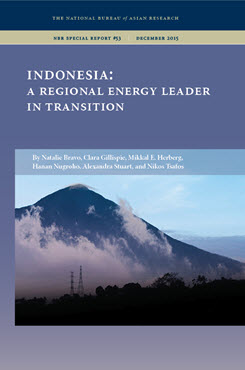Oil in Indonesia
Transitioning to a "New Normal" of Managed Import Dependence
This essay explores the evolution of Indonesia from a net exporter to a net importer of oil and analyzes the role of this shift in the country’s development.
EXECUTIVE SUMMARY
This essay explores the evolution of Indonesia from a net exporter to a net importer of oil and analyzes the role of this shift in the country’s development.
MAIN ARGUMENT
Oil exports have long been a key driver of Indonesia’s prosperity and economic development. However, Indonesia is in the midst of a historic transition from being an oil exporter to a net oil importer as a result of a long-term decline in oil production and rapidly rising domestic oil demand. This transition is partly a reflection of a natural maturing of the country’s development toward a broader energy, resource, and manufacturing export model. However, such a rapid shift toward growing dependence on oil imports has added new headwinds to economic growth and aggravated concerns over future energy security. Indonesia’s oil resources are still substantial, and more effective policies to promote new investment in oil exploration and development could reduce the weight of oil imports on the economy. Domestic oil demand is also rising much more rapidly than necessary, and new policies are needed to slow the pace of rising demand and reduce the enormous cost of popular but counterproductive oil subsidies.
POLICY IMPLICATIONS
- Although Indonesia is going through an inevitable transition to a “new normal” of dependence on imported oil, the Jokowi administration needs to more effectively manage that import dependence and work to reduce the burden of expensive oil imports.
- To attract new international investment in oil exploration and development, Indonesia needs to develop more competitive oil investment and taxation terms, streamline oil investment decision-making and required permits, reduce corruption and mismanagement, and clarify the role of regional governments and tax authorities in the oil sector, among other measures.
- To slow the unsustainable rate of growth in oil consumption, Indonesia must implement a more realistic fuel-pricing system that reflects global oil prices and helps to dampen rising oil demand. The Jokowi administration must exploit the current decline in global oil prices to take further steps to eliminate pernicious oil subsidies that absorb huge budget funds that would otherwise be available for badly needed investments in healthcare, education, and infrastructure.
Mikkal Herberg is Research Director of the Energy Security Program at the National Bureau of Asian Research (NBR). He is also a Senior Lecturer on international and Asian energy at the School for Global Policy and Strategy at the University of California–San Diego.


